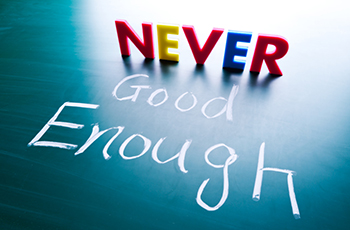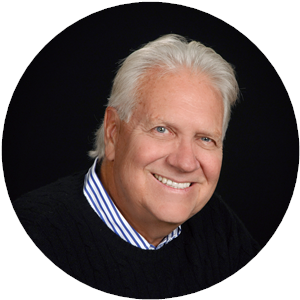“Good is the Enemy of Great.” That was the first sentence of “Good to Great: Why Some Companies Make the Leap…and Others Don’t” by author Jim Collins. It was a best seller and became the “bell cow” for companies to be the best they can be, as well as to benchmark themselves against competitors and leaders in their industry. While this is a great approach when operating a business, it is a trap when selecting real estate.
When selecting real estate for your business or investment, “Great is the enemy of Good,” and that is not an approach that will result in the success you desire. Great is a trap into which it is easy to fall, and besides the corporate mantra espoused by Mr. Collins, inculcates the balance of your operation. How can we settle for good? That just does not seem right. How can we adopt, “Mediocre is my motto?”
When working with companies that will occupy buildings, we interview them to determine their ideal requirement. We work to understand the hierarchy of the characteristics to help us provide clarity and good advice. We seek to find the best alternative and to help the client to see it too. Over time our clients usually rationalize their visions for great compared to what is possible and affordable at the time.
We recently worked with an investor who was in a Starker 1031 Exchange. The investor had 45 days from the close of the sale escrow for a previous property to identify three prospective properties and six months to close. As we used a fine-toothed comb to investigate available properties that fit the requirement, the vision of great seemed to hang over us like a cloud when selecting a property. Visions of what would be great, although unrealistic, seemed to create frustration that was not productive or constructive. (Investors don’t seem to quickly adapt to the “best alternative” approach as easily as users, although they often don’t have the same urgency either.)
Up until the last 10 days of the 45 allocated, the client developed a malaise that manifested as a lack of motivation and minor depression, despite the need to avoid paying taxes on the gain from the previous sale. While ruminating about this state of being, it occurred to me that the mantra for operating a wonderful business was counter to the philosophy and approach required to make good commercial real estate decisions.
The following are thoughts we shared with this client who was looking for a commercial real estate investment between $2 million and $6 million.
- It is impossible to discern whether it is a good or great investment until you have owned it for five to ten years. One of the best investments I made during my career, was a small, frame & stucco, four building park in Signal Hill. Nine friends and I invested in the property in 1984 and the outcome has been phenomenal. I couched it as a fair investment at the time and did not think it would compare to my prior investments. Who knew it would be so good? It is not an investment you would look at and say, “I can hear the sizzle.” It is not sexy and is far from being a trophy property. But it goes ca-ching! At inception it was good, and over time it proved to be great.
- It is easy to mentally micro-manage the selection process and make yourself crazy trying to make the “perfect” decision. There is no perfect decision and that is a state of being we need to be comfortable and successful. We make the best decision at the time, and if we have done appropriate due-diligence and generally feel good about it, perhaps this is the time to strike. Metaphorically, how many of us take the prom queen to the dance? The neck of that bottle is pretty narrow.
- What is the differential between a great and good investment? Is it significant enough to make a big difference? We like to think it is…but is it really? We can do no better than to use informed judgment to select what looks superior to other alternatives at the time we select the property. Is it possible to achieve more?
- If the return on investment is in a reasonable range, is that acceptable? If you make a bad choice, you get a moderate rate of return the next 10 years, and sell it for a small profit, can you live with the outcome? Will it change the quality of your life significantly? How much money do you really want to leave your kids anyway?
- If you can live with that (of course we want to avoid small returns), then take your best shot, “let go” and peacefully move forward with the best alternative. If time shows us we didn’t make the “best” decision, will our families miss any meals? But, since you are a consummate professional, the odds will be on your side.
To recap, our desire to purchase something great will keep us from doing something good, and great may well be outside our reach. When dealing with investments, results are only discernable many years after the purchase is made. Hyper-focus on great disturbs our mental peace and is at best a mirage that distracts us from reasonable decisions.
We need to take our best shot and not look back. (Other than learning from experience, rear view mirrors are really only effective on vehicles. Did you notice there are no rear view mirrors on airplanes?) If something turns out to be less than acceptable, we can sell it and exchange into something that looks better. We all have “if only” stories that will cause us regret and angst if we choose to focus upon them. (I am wondering why I sold part of my Apple stock two years ago.) Isn’t living in the here and now, doing the best we can, and letting the future take care of itself a more peaceful approach? Other than learning from our mistakes, ruminating about the past is a lousy hobby. It is a good way to shorten our lives, or perhaps make our lives so miserable that shortening them is a good thing.
It is not my nature to counsel mediocrity, but setting goals too high creates unreasonable expectations, and insures disappointment and levels of compulsivity that are not healthy and don’t give us peace. If we could predict the future we would not invest in real estate, but would be at the track betting on the ponies or in Las Vegas.






